Re-check all of your values.
I was also getting the same invalid_grant response and could not figure out why at first. It turns out that I had a typo in the Content-Type header. I was using application/x-www-form-urlencode instead of application/x-www-form-urlencoded.
You may not be, but if you are submitting the exact Authorization Header as you've posted it here in your question (MjMwNTQ2YTctOWM1NS00MGFkLThmYmYtYWYyMDVkNTQ5NGFkOjMwODc1NTVlLTBhMWMtNGFhOC1iMzI2LTY4MmM3YmYyNzZlOQ==) it will fail with that message.
That is the base64 value for the sample integration key and sample secret key provided in their documentation. If you decode that string with an online base64decoder it will result in 230546a7-9c55-40ad-8fbf-af205d5494ad:3087555e-0a1c-4aa8-b326-682c7bf276e9. This is the same sample integration key and secret in the documentation.
Check the Authorization header you are submitting by encoding your integration key and secret (integrationKey:secret) using this online base64encoder. This will make sure the issue isn't with your base64 encoding of your integration key and secret. Once you have that value make sure your Authorization uses the word Basic before the value you got from this website. (Basic base64stringFromOnlineEncoder)
Check that the code your are submitting in the body of the post is not the sample code from their documentation. ey2dj3nd.AAAA39djasd3.dkn4449d21d is the sample code from their documentation. You may just be using that in your question as a placeholder but if you are submitting any of those values it will return invalid_grant. Make sure that the body of your post does not have any leading or trailing spaces.
- Have the correct Content-Type set application/x-www-form-urlencoded
- Have the correct Authorization header set Basic base64EncodedIntegrationKey:Secret
- Have the correct body using the valid code received from the GET request to /oauth/auth with no leading or trailing spaces, making sure you're not using the values from your question.
If you are still having trouble and you are not doing a user application but are doing a service integration you can use Legacy Authentication to get your oAuth2 token.
Alternative Method using Legacy Authentication for Service Integrations
This method does not use a grant code. You pass in the integration key, username and password into the X-DocuSign-Authentication header in JSON format.
Demo Server: demo.docusign.net
Production Server: www.docusign.net API
Version: v2
POST https://{server}/restapi/{apiVersion}/oauth2/token
Content-Type: application/x-www-form-urlencoded
X-DocuSign-Authentication: {"IntegratorKey":"your_integrator_key","Password":"docusign_account_password","Username":"docusign_account_username"}
grant_type=password&client_id=your_integrator_key&username=docusign_account_username&password=docusign_account_password&scope=api
If you are building a user application that requires the user enter their docusign credentials to generate the token, this alternative will not work for you.
